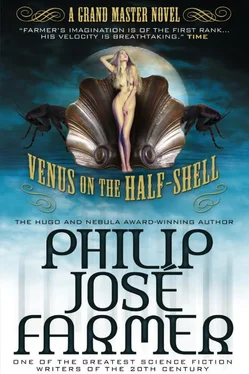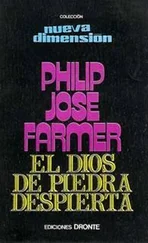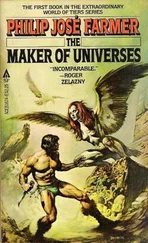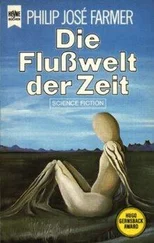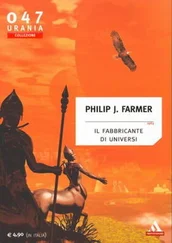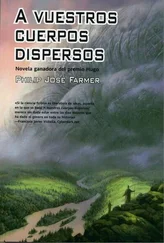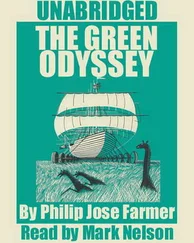First, though, Simon thought he should explain the references and the situation since she didn’t read anything but True Confessions and best sellers.
“Robert Browning was a great Victorian poet who married the minor poet Elizabeth Barrett,” he said.
“I know that,” Ramona said. “I’m not as dumb as you think I am. I saw The Barretts of Wimpole Street on TV last year. With Peck Burton and Marilyn Mamri. It was so sad; her father was a real bastard. He killed her pet dog just because Elizabeth ran off with Browning. Old Barrett had eyes for his own daughter, would you believe it? Well, she didn’t actually run off. She was paralyzed from the waist down, and Peck, I mean Browning, had to push her wheelchair through the streets of London while her father tried to run them down with a horse and buggy. It was the most exciting chase scene I’ve ever seen.”
“I’ll bet,” Simon said. “So you know about them. Anyway, Elizabeth wrote a series of love poems to Browning, Sonnets from the Portuguese. He called her his Portuguese because she was so dark.”
“How sweet!”
“Yes. Anyway, the most famous sonnet is the one in which she enumerates the varieties of love she has for him. This inspired Bruga’s poem, though he didn’t set it in sonnet form.”
Simon sang:
“How do I love thee? Let me figure
The ways,” said Liz. But mental additions
Subtracted from Bob Browning’s emissions,
Dividing the needed vigor to frig her.
Here’s what he said to the Portuguese
In order to part her deadened knees
“Accounting’s not the thing that counts.
A plus, a minus, you can shove!
Oh woman below and man above!
It’s this inspires the mounts and founts!
“To hell with Euclid’s beauty bare!
Liz, get your ass out of that chair!”
“Those were Bruga’s last words,” Simon said. “He was beaten to death a minute later by an enraged wino.”
“I don’t blame him,” Ramona murmured.
“Bruga only did his best work when he was paid on the spot for his instant poetry,” Simon said. “But in this case he was improvising free. He’d invited this penniless bum up to his Greenwich Village apartment to have a few gallons of muscatel with him and his mistress. And see the thanks he got.”
“Everybody’s a critic,” Ramona said.
Simon winced. She said, “What’s the matter?”
He plucked the banjo as if it were a chicken and sang:
“Why does critic give me a pain?
Father’s name was Killer Kane.”
Feathers of sadness fluttered about them. Ramona cackled as if she had just laid an egg. It was, however, nervousness, not joy, that she proclaimed. She always got edgy when he slid into a melancholy mood.
“It’s such a glorious day,” she said. “How can you be sad when the sun is shining? You’re spoiling the picnic.”
“Sorry,” he said. “My sun is black. But you’re right. We’re lovers, and lovers should make each other happy. Here’s an old Arabian love song:
“Love is heavy. My soul is sighing…
What wing brushes both of us, dearest,
In the sick and soundless air?”
It was then that Ramona became aware that his mood came more from the outside than the inside. The breeze had died, and silence as thick and as heavy as the nativity of a mushroom in a diamond mine, or as gas passed during a prayer meeting, had fallen everywhere. The sky was clotted with clouds as black as rotten spots on a banana. Yet, only a minute before, the horizon had been as unbroken as a fake genealogy.
Simon got to his feet and put his banjo in its case. Ramona busied herself with putting plates and cups in the basket. “You can’t depend on anything,” she said, close to tears. “It never, just never, rains here in the dry season.”
“How’d those clouds get here without a wind?” Simon said.
As usual, his question was not answered.
Ramona had just folded up the blanket when the first raindrops fell. The two started across the top of the sphinx’s head toward the steps but never got to them. The drops became a solid body of water, as if the whole sky were a big decanter that some giant drunk had accidentally tipped over. They were knocked down, and the basket was torn from Ramona’s hands and sent floating over the side of the head. Ramona almost went, too, but Simon grabbed her hand and they crawled to the guard fence at the rim of the head and gripped an upright bar.
Later, Simon could recall almost nothing vividly. It was one long blur of numbed horror, of brutal heaviness of the rain, cold, teeth chattering, hands aching from squeezing the iron bar, increasing darkness, a sudden influx of people who’d fled the ground below, a vague wondering why they’d crowded onto the top of the sphinx’s head, a terrifying realization of why when a sea rolled over him, his panicked rearing upward to keep from drowning, his loosing of the bar because the water had risen to his nose, a single muffled cry from Ramona, somewhere in the smash and flurry, and then he was swimming with nowhere to go.
The case with the banjo in it floated before him. He grabbed it. It provided some buoyancy, and after he’d shucked all his clothing, he could stay afloat by hanging onto it and treading water. Once, a camel swam by him with five men battling to get onto its back. Then it went under, and the last he saw of it was one rolling eye.
Sometime later, he drifted by the tip of the Great Pyramid. Clinging to it was a woman who screamed until the rising water filled her mouth. Simon floated on by, vainly trying to comprehend that somehow so much rain had fallen that the arid land of Egypt was now over 472 feet beneath him.
And then there came the time in the darkness of night and the still almost-solid rain when he prepared to give up his waterlogged ghost and let himself sink. He was too exhausted to fight anymore, it was all over, down the drain for him.
Simon was an atheist, but he prayed to Jahweh, his father’s god, Mary, his grandmother’s favorite deity, and Gitche Manitou, his mother’s god. It couldn’t hurt.
Before he was done, he bumped into something solid. Something that was also hollow, since it boomed like a drum beneath the blows of the rain.
A few seconds afterward, the booming stopped. He was so numb that it was some time before he understood that this was because the rain had also stopped.
He groped around the object. It was coffin-shaped but far too large to be a coffin unless a dead elephant was in it. Its top was slick, and about eight inches above water. He lifted the banjo case and shoved it inward. The object dipped a little under his weight, but by placing the flats of his palms on it, he got enough friction to pull himself slowly onto the flat surface and then onto its center.
He lay there panting, face down, too cold and miserable to sleep. Despite which, he went to sleep, though his dreams were not pleasant. But then they seldom were.
When he awoke, he looked at his watch. It was 07:08. He had slept at least twelve hours, though it hadn’t been refreshing. Then, feeling warm on one side, he turned over slowly. A dog was snuggled up against him. After a while, the dog opened one eye. Simon patted it and lay back face down, his arm around it. He was hungry, which made him wonder if he wouldn’t end up having to eat the dog. Or vice versa. It was a mongrel weighing about sixty pounds to his one hundred and forty. It was probably stronger than he, and bound to be very hungry. Dogs were always hungry.
He fell asleep again and when he awoke it was night again. The dog was up, a dim yellow-brown, long-muzzled shape walking stiffly around as if it had arthritis. Simon called it to him because he didn’t want it upsetting the delicate balance. It came to him and licked his face, though whether from a need for affection or a desire to find out how he tasted, Simon did not know. Eventually, he fell asleep, waking as stiff as a piece of driftwood (or a bone long buried by a dog). But he was warm. The clouds were gone, the sun was up, and the water on the surface of the object had dried off.
Читать дальше
